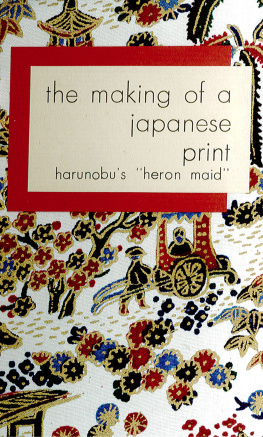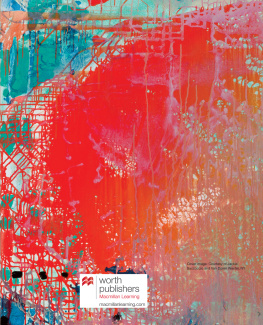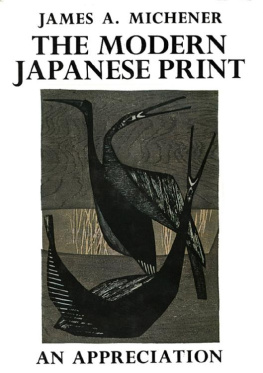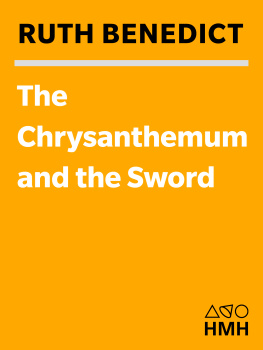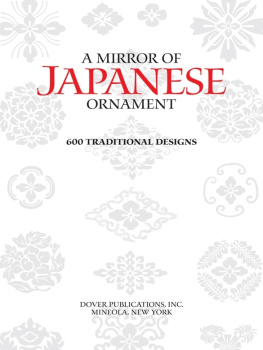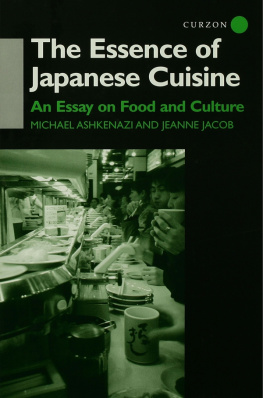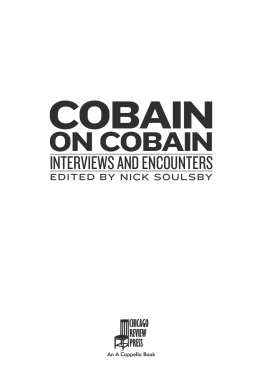MIRROR SWORD AND JEWEL
A STUDY OF JAPANESE CHARACTERISTICS
Originally published 1973 by Croom Helm Ltd
First published in paperback 1997 by
Routledge
2 Park Square, Milton Park, Abingdon, Oxon, OX14 4RN
270 Madison Ave, New York NY 10016
Japan Library is an imprint of Routledge Ltd
Transferred to Digital Printing 2010
1973 The Kurt and Edith Singer Stiftung
All rights reserved. No part of this publication may be reproduced, stored in a retrieval system, or transmitted in any form or by any means, without prior permission in writing from the Publishers, except for the use of short extracts in criticism.
British Library Cataloguing in Publication Data
A CIP catalogue entry for this book
is available from the British Library
ISBN 1-873410-69-7
Publishers Note
The publisher has gone to great lengths to ensure the quality of this reprint but points out that some imperfections in the original may be apparent.
It must be more than two years ago now since I received an unexpected letter from London, from Dr Eduard Rosenbaum, who got in touch with me at the suggestion of a mutual friend, Professor James Joll. Dr Rosenbaum informed me that he had the MS of an unpublished book on Japan, the work of a friend who had died some years earlier in Greece and who had lived in Japan during the 1930s. Would I be interested in reading it?
The package that arrived in Oxford a few days later contained just over 300 quarto pages of typescript. As soon as I settled down to read them I recognised that here was a work of audacious insight by an unusual man. Dr Kurt Singer, I discovered, had taught economics at Tokyo Imperial University and had then moved north to Sendai, to the Higher School in that city. He had arrived in Japan in the late spring of 1931 and departed, for Australia, in the summer of 1939. Mirror, Sword and Jewel was written after the end of the Pacific War, while the author was at the University of Sydney. It represented his considered reflections on Japan and the Japanese. It was clear that Kurt Singer brought to his study of Japanese characteristics a first-class intellect, nourished by a classical education and refined by more than twenty years of writing and teaching in Germany. His approach was metaphysical. Singer was an economist with the soul of a poet.
German-Jewish by birth and upbringing, he commanded an English style that only occasionally ignored the claims of euphony. This lent an added flavour to ones appreciation of the MS; but what imposed respect was the perceptiveness of his comments on Japanese attitudes and traditions. At times, it is true, he seemed to be writing about a society that had ceased to exist. But it was only in certain areas, and superficially, that his views could be described as dated. He had livedas I had, when I first went to Japanin an atmosphere infected by the poison of radical nationalism. But like myself he had been lucky enough to work in an academic environment, for the most part in a provincial city far from Tokyo. However, unlike myself, he was a mature scholar, with an established position in his own country, when he first set foot in Japan. Indeed, Kurt Singers arrival in that country must have more or less coincided with his forty-fifth birthday. Of the 1880s, the decade in which he was born, Singer was to write:
The generation born at that great watershed had the advantage of growing up within a social framework which had not yet exhausted its last resources of coherence and stability. Their educators were eminently mature minds, their youth coincided with movements opening new horizons of thought and beauty, their wills were kept in tension by a growing but not yet critical antagonism of forces.
It was perhaps, in part, this inheritance, confident and well-ordered, that enabled Singer to look beyond the ephemeral to the real springs of Japanese life.
His stature, mental and physical, was such as to make a most favourable impression on the Japanese. He was an authority on Platohis work on Plato the Founder (Platon der Grnder) had been published in 1927and he belonged to the circle of the imperious and visionary post-Symbolist poet, Stefan George. He was a friend and admirer of Maynard Keynes, who had started contributing articles soon after the First War to an economic journal edited by Singer in Hamburg. At Tokyo Imperial University he lectured on political economy and sociology. He was a versatile and productive writer for such recondite periodicals in Japan as Shiso (Thought). In short, he was everything that a Japanese would expect a European scholar to be. And he possessed a further asset. As a former Tokyo colleague recalls: Dr Singer was an exceptionally small man for a European, smaller than This, in Japan in those days, was a real advantage. He is still remembered to this day with great affection by his former Japanese students.
When he sailed from Europe Singer intended to spend no more than three years at most in Japan. He was technically on leave from the University of Hamburg. In the Preface to Mirror, Sword and Jewel he confesses not to have felt bored during those eight years [in Japan] during a single quarter of an hour. And after he left the country he told an acquaintance that in Japan there was always electricity in the air. But we may be sure that he would have resumed his career in Germany, had not Hamburg University deprived him of his Readership in the spring of 1933, on the grounds of his Jewish origin.
The persecution of the Jews did not leave German Jews in Japan unscathed. Tokyo Imperial University declined to renew Singers appointment at the end of his three-year contract. However, the Higher School in Sendai (Dai Ni Koto Gakko) gave him a lectureship on a year-to-year basis. This too was terminated, in the spring of 1939, thanks to pressure on the Mombusho (Ministry of Education) applied by the Nazi Teachers Association in Japan. As Singer was to remark in later years: In Japan all foreigners are treated as unwanted as soon as they cease to be persona grata in their own country. He must have been tempted to make much the same kind of comment about the country of his second exile, Australia.
It appears to have been on the advice of Keynes that Singer chose Sydney as his destination when he left Japan in August, 1939. But the first years, at least, in Australia were not happy. Singers status as a Jewish refugee seems not to have been recognised. Indeed, from June 1940, until October 1941, he was interned as an enemy alien; and it was not until 1946 that he was able to achieve a certain security, thanks to an appointment in the economics faculty of Sydney University, after he had chosen to acquire British nationality.
Kurt Singer never married. At the outbreak of war in Europe in 1939 his only close relative was a younger sister in Hamburg.
In 1957 some financial restitution was made to Singer by the Hamburg Senate. In his appeal to the authorities of that city and university he could speak with justice of pressing sorrow, hindered endeavour and offended honour. It was in the autumn of that year, 1957, that he returned to Europe, living for a time in Rome and Switzerland. Finally he settled in Athens, where he found a certain peace and happiness. In the words of one of his friends, Greece gave him the fulfilment of an old longing (




